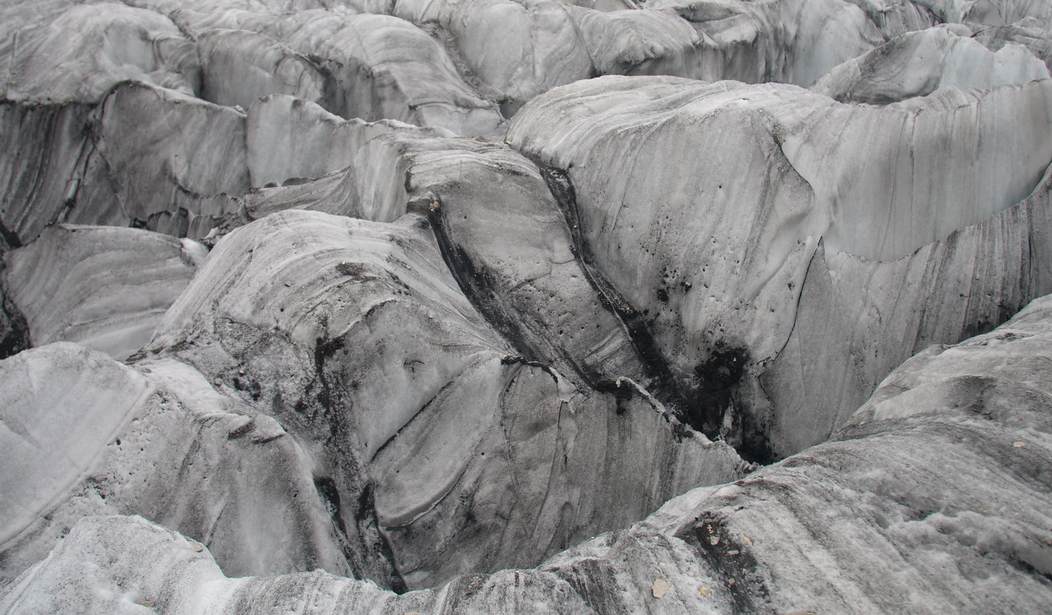Editor's note: This column was authored by Scott Bledsoe.
On Black Friday, the federal government released a troubling climate assessment report while millions of Americans were flooding the gates of their nearest shopping mall. The report highlights the long-term environmental and economic damage the United States will face if action is not taken to address climate change.
The report was originally set for a December release, but was instead published on one of the busiest shopping holidays of the year, probably so it would get less attention. Beyond that, President Trump recently responded with a simple “I don’t believe it” when asked about his own government’s findings in an interview. This confirms how low of a priority climate change is for the Trump administration and GOP leaders.
Republican lawmakers have remained largely silent on the report’s findings, with a few exceptions like Nebraska Senator Ben Sasse, who acknowledged during a Fox News interview that human activity has contributed to global warming, and called for a national conversation about climate change. Sasse’s attitude is reminiscent of a past GOP: In 2008, Republicans were concerned enough about climate change for Nancy Pelosi and Newt Gingrich to sit side by side and call for action in a TV ad.
Such an ad is unimaginable in today’s divided Washington. The issue of climate change has become intensely polarized, and Republicans have largely ceded the issue to the Democrats. This is a mistake. Taking action to address climate change is completely in line with mainstream Republican beliefs in the areas of national security, faith, and the economy.
Recommended
The Republican Party believes in maintaining order and global stability through a strong national defense. And while the climate assessment report does not deeply examine the national security implications of climate change, it is not hard to imagine how disastrous they could be. The report highlighted the crop losses farmers will face as a result of drought, flooding, and increased global temperatures. This could lead to increased competition over key resources among the various regions of the U.S. as well as with trading partners across the globe. Additionally, rising sea levels and increased occurrence of wildfires could displace millions of people, creating the kind of refugee crisis that always inflames tensions between neighboring countries. A party truly concerned about national security must acknowledge the danger posed by domestic environmental threats too.
The Republican Party believes in the importance of faith, and garners much of its support from the large voting bloc of evangelical Christians in this country. Christian teachings are completely compatible with a belief that we need to address climate change. In creating the earth, God made humans its humble stewards. Christian conservatives should realize that it is their duty to safeguard and nurture the Earth, and shouldn’t let partisanship keep them from acting in line with the teachings of their faith.
The Republican Party also believes that free markets are a driving force for innovation and economic vitality in America. Yet the negative impacts of climate change threaten the economic system conservatives so value. The new climate report warns of the severe economic implications of ignoring climate change, estimating that the U.S. could lose hundreds of billions over time across various agricultural sectors of the economy, with the worst case scenario being a 10 percent drop in GDP by 2100. Surely Republicans can agree that it's crucial such damaging economic losses are prevented.
Luckily, policy proposals like a carbon tax or a cap-and-trade system are Republican-friendly and could go a long way in reducing carbon and greenhouse emissions.
Republican economist Gregory Mankiw has made the conservative case for a carbon tax, which would be a tax on activities that emit carbon dioxide into the atmosphere, such as burning coal or gasoline. Mankiw compares it to a tax on cigarettes, which he claims has been effective in reducing smoking rates. It’s Republican-friendly because, as Mankiw argues, revenue from a carbon tax makes it possible to lower taxes in other areas— like payroll or income—making it more of a tax shift instead of a tax increase. Another market-friendly solution to climate change could be a cap-and-trade policy, which would create a market for pollution permits and limit carbon emissions to an efficient level. Such a policy has already succeeded in California.
While cap-and-trade and carbon tax policies can be compatible with conservative principles, progress will not even begin until more Republicans acknowledge the threat that climate change poses to our world. It’s time to stop the climate denial and start putting conservative principles into action.
Scott Bledsoe is a Young Voices contributor and master’s candidate in political communication at American University in Washington, D.C.

























Join the conversation as a VIP Member